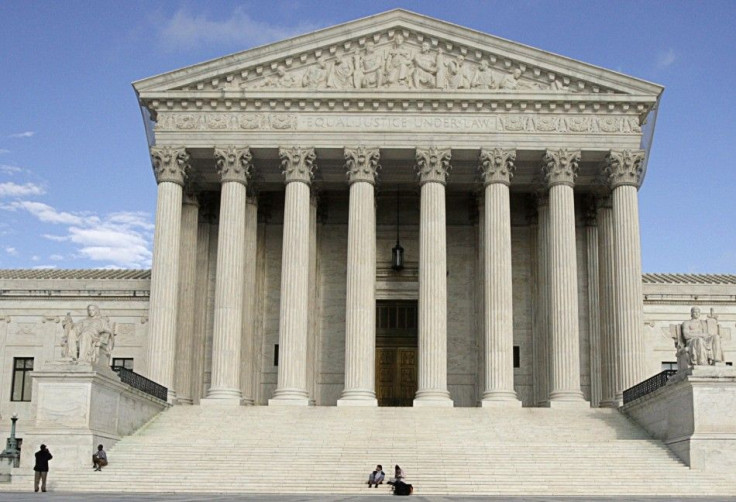Obamacare Supreme Court Ruling: Upholds Health Care Law, Individual Mandate Constitutional

The U.S. Supreme Court, in a historic decision on Thursday, upheld President Barack Obama's health care reform law, confirming the constitutionality of the president's signature legislative achievement that is predicted to expand insurance coverage to 30 million Americans.
In a 5-4 vote, Chief Justice John Roberts -- a conservative appointed by President George W. Bush -- joined the court's liberal judges to rule the Affordable Care Act's individual mandate requiring most Americans to purchase health insurance is in fact constitutional. The justices ultimately ruled that while the mandate, demonized for years by opponents as an example of government overreach, violates the Commerce Clause of the U.S. Constitution. However, five of the judges agreed that the penalty someone must pay if he or she refuses to buy insurance is a kind of tax that Congress can impose using its taxing power.
The Affordable Care Act's requirement that certain individuals pay a financial penalty for not obtaining health insurance may reasonably be characterized as a tax, Roberts wrote for the court's majority in the opinion. Because the Constitution permits such a tax, it is not our role to forbid it, or to pass upon its wisdom or fairness.
Roberts was joined by Justices Stephen Brewer, Sonya Sotomayor, Elena Kagan and Ruth Bader Ginsburg in the opinion.
While a majority of the court ruled the law's Medicaid expansion is constitutional, it simultaneously said it is illegal for the federal government to withhold existing Medicaid funds to states for non-compliance with the reform law's new eligibility requirements. However, the court held the provision is constitutional as long as states would only lose new funds if they did not comply.
The dissenting justices said the mandate is unconstitutional and the entire law should be struck down. Justice Anthony Kennedy, a moderate who for months leading to the decision was framed as the potential swing vote to save the heatlhcare case, ultimately authored the strongly-worded dissenting opinion where he wrote the law is invalid in its entirety.
What Does It Mean?
The Affordable Care Act contains a combination of consumer protections and new insurance marketplaces and an expansion of the government-sponsored Medicaid program to expand coverage to some of the estimated 50 million Americans who currently do not have health insurance.
Now, insurance companies can no longer deny health coverage to children with pre-existing health conditions - a provision that will be in full effect in 2014 --, put a lifetime cap on the amount of care they will pay for, or cancel coverage for beneficiaries if they develop a health condition.
Among some of the most consumer-popular provisions immediately enacted by the law is one allowing young adults stay on their parents' health plans until age 26 -- a change the White House estimated has expanded coverage to 2.5 million young adults - and another requiring insurers to cover a number of preventive care services without co-pays or out-of-pocket costs. The Obama administration estimates 54 million Americans with private health coverage have already received higher-quality preventive care coverage as a result.
The law's Medicaid expansion is expected to extend insurance to about 17 million more people over the next decade. Individuals with incomes under 133 percent of the poverty level -- in 2012, that's $14,856 -- will be able to qualify for Medicaid coverage. Analysts expect the new enrollees will mostly include adults without children or disabilities, since low-income families and those with disabilities are already eligible for the government program.
The new law also strengthens Medicare by providing access to preventive services without cost sharing and offering steep discounts on prescription drugs for eligible seniors who fall into a coverage gap.
Starting in 2014, those without employer-sponsored health plans will be able to purchase coverage directly from state-based health insurance exchanges. Individuals and small business will be able to choose between several affordable private plans in these marketplaces, where they will also be able to apply for federal tax subsidies to ease the cost of coverage.
© Copyright IBTimes 2025. All rights reserved.





















